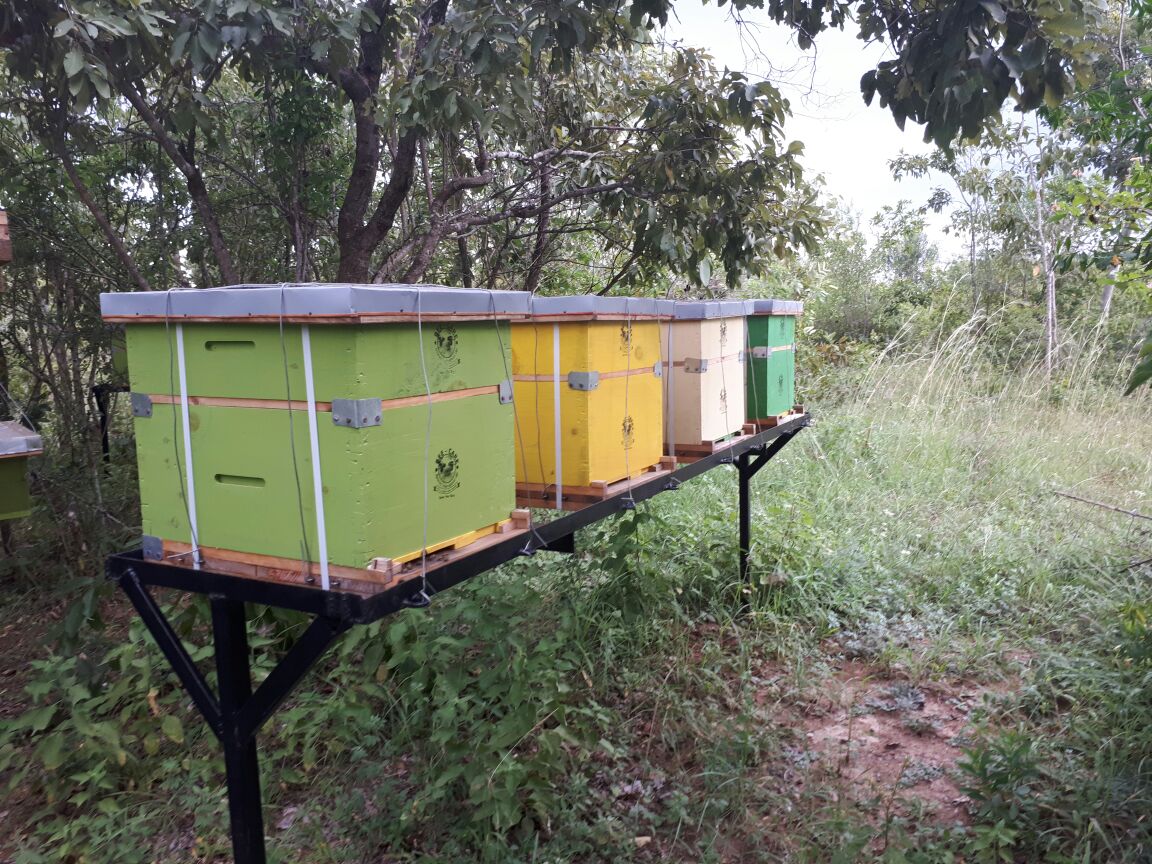Backyard beehive by Bee Care Apiaries International Limited. The hive is made of pine wood which has scent that attracts bees. Photo courtecy.
Beekeepers can increase their honey production from 40 kilograms to 80 kilograms annually representing 13 percent increase by using backyard type of beehives as compared to other type of hives such as the Langstroth hives.
According to beekeeping expert and consultant, Ezekiel Mumo, backyard hives are made of with two supers which contain 20 frames while Langstroth hives have only 10 frames making them smaller in capacity to accommodate as many bees as backyard hives.
“Farmers who are keen to produce more honey every season will choose the backyard hives over Langstroth hives because of their bigger capacity and efficiency,” said Mumo who is also the Project Officer at Bee Care Apiaries International Limited, buyers and marketers of all bee products with global market links.
“This does not mean that Langstroth hives are not supposed to be used, but a farmer is at liberty to choose a product which will best suit their production needs.”
RELATED ARTICLE: Commercial honey harvesting takes root as demand grows
RELATED ARTICLE: Beekeepers taste sweet success with honey value addition
RELATED ARTICLE: Packaging honey earns student more profits
Backyard hives are made from well-seasoned pine wood to the right moisture content to provide a conducive environment for bees to survive in besides preventing the hive from warping and rotting. The hives are sold while pre-installed with wax to increase the colonization by bees.
The Hive has a bottom screen mesh to monitor presence of Varoa mites, pests that affect the health and productivity of the colony. Well dried pins timber, made strong to last by use of figure joints using current technology. The Hive is well ventilated to allow circulation of air inside the hive.
Farmers using backyard hives can therefore easily change the suppers when harvesting without interfering with the other supper hence one can harvest twice within a short period of time.
“Our hives make a farmer’s work easier and more comfortable with backyard hives which do not interrupt honey production process by the bees during harvesting of the product as farmers can easily do the replacement without confusing the bees,” said Mumo.
The top cover of backyard beehives has wide heaves which protect the hive from adverse weather like much rain and wind that may reach and disturb the bees.
Bee Care Apiaries International Limited sells backyard hives at Sh10,000 each plus the wax already fitted in it while Langstroth is cheaper.
“We sell our products nationwide doing delivery through our transport system at a fee though farmers are free to choose which means of transport is suitable for them because we also deliver through courier and public vehicle transport at farmer’s cost.”

Langstroth beehives. Photo courtecy.
The company does installation of their equipment which include the hives, solar wax melting machines, electric and manual honey extractors and flow hives among many for free.
Free installation is to help the farmer set up a good apiary besides offering feasibility study for the farmers in their farms, mostly for a site for the project.
“We also offer market for our farmers. They are to collect their honey at a central point where we come to buy it, meaning they will incur zero transport cost,” said Mumo.
Mumo can be contacted on +254 712 611207 or reach Bee Cares Apiaries International on Sales@beecareapiaries.com or Jackson Masesi , company’s Director on +254 726 349853.